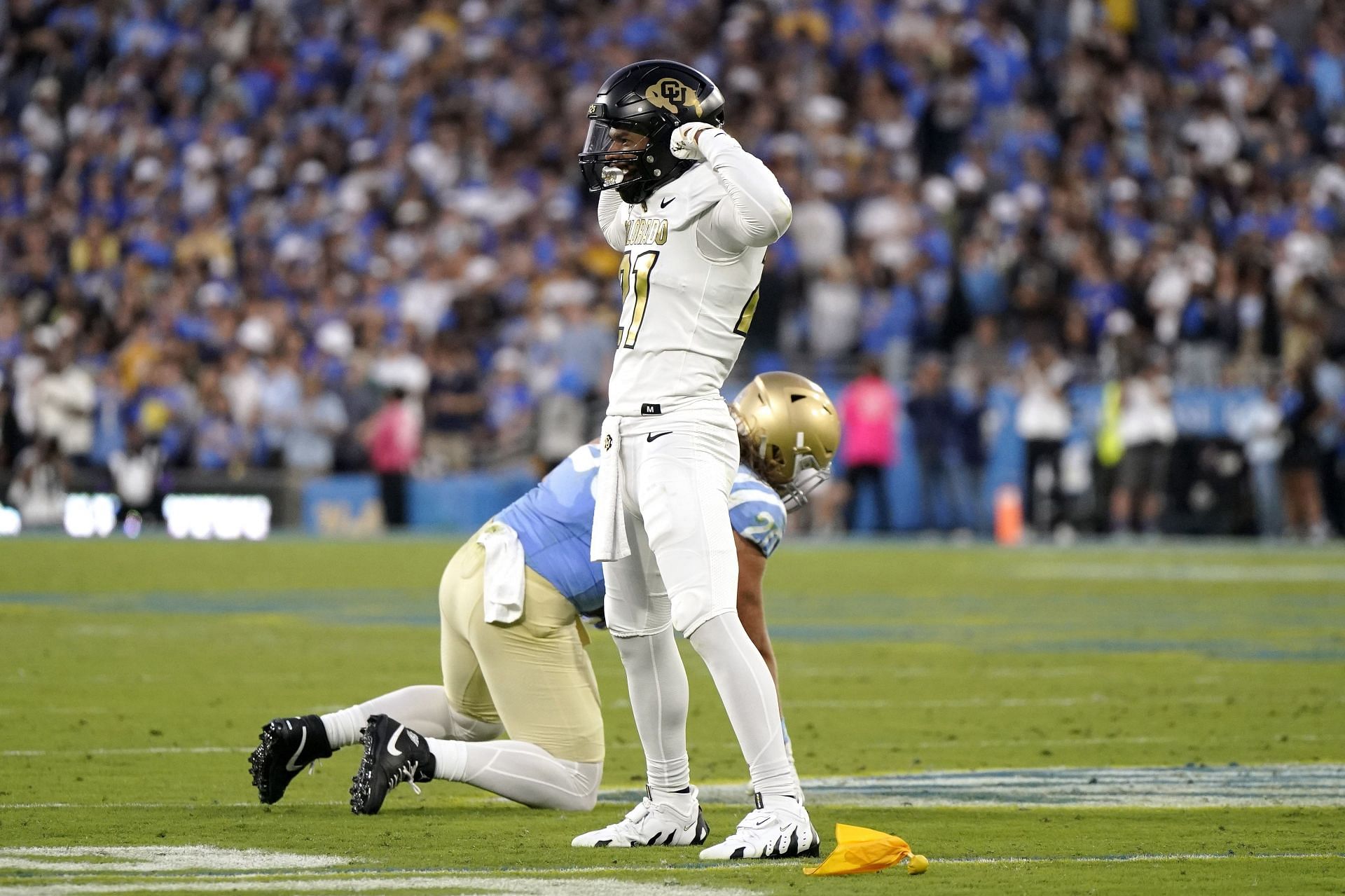
College football targeting call explained: Why was Shilo Sanders ejected during UCLA clash?
Pro Football Hall of Famer and Colorado coach Deion Sanders' son Shilo Sanders was ejected from the Buffs game on Saturday against the UCLA Bruins. This happened late in the second quarter when Shilo Sanders targeted running back Carsen Ryan after he caught a pass from Bruins quarterback Ethan Garbers. ESPN commentators wondered if this meant his expulsion from the game.
Initially, Shilo Sanders was seen celebrating the play, oblivious to the new rule that he could get expelled for using his helmet to stop Ryan. Officials reviewed the play and removed Shilo Sanders from the game with 3:18 left to play.
Immediately, the cameras panned to Sanders, who stood in disbelief. Deion Sanders comforted him and explained why his play wasn't allowed under the rules. His expulsion left the Colorado secondary without one of his most important pieces for the second half. Colorado went on to lose 28-16. The game was 6-7 in favor of UCLA when Shilo Sanders was forced to leave.
What rule forced Shilo Sanders to leave the game?
Targeting, a hotly debated rule, especially at the NCAA level, stems from the need to lower the risk of injury to players, especially their brains. There's been growing awareness of the long-lasting scars football can leave, and the NCAA and the NFL have worked hard to make the sport safer.
Here is the definition of targetting under Rule 9, Section 1, articles 3 and 4 of the NCAA rulebook:
ARTICLE 3. No player shall target and make forcible contact against an opponent with the crown of his helmet. This foul requires at least one indicator of targeting (See Note 1 below). When in question, it is a foul. ...
ARTICLE 4. No player shall target and make forcible contact with the head or neck area of a defenseless opponent with the helmet, forearm, hand, fist, elbow, or shoulder. This foul requires that there be at least one indicator of targeting. When in question, it is a foul. ...
The penalty for breaking the rule includes a 15-yard penalty and automatic first down if the offender is in defense. If the foul occurs in the first half, the player is disqualified for the remainder of the game. If the foul occurs in the second half, the player is disqualified from the remainder of the game and the first half of the next game.
If a player is called for a third targeting foul of the season, he will be disqualified for the remainder of the game and the entirety of the next game. If the foul occurs in the last game of the regular season, the player is disqualified from the postseason game or the first game of the next season.
Shilo Sanders got off easy.